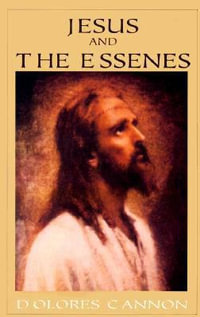In New Testament scholarship, the study of space has been underrepresented in comparison with the study of time. While Jesus' life and ministry have been intensively explored in terms of eschatology--i.e., with time significance--space has tended to be treated as simply a given room or inactive backdrop where events took place. Interest in the space where Jesus ministered has, however, gradually increased, and space has received greater attention from sociological and literary perspectives. In particular, spatial investigations into the social circumstances of Galilee, the place of origin of Jesus' missional movement, have begun to attract serious scholarly attention. The important functions of space in literature are also becoming better recognized: spatial settings serve not only to generate atmosphere but also to disclose the purposes and themes of narratives. This book explores Jesus' Galilean ministry in Mark 4:35--8:21 through the use of spatial analysis, dividing space into three categories: social, geographical, and allusive. The study of each space discovers social, literary, and theological implications of Jesus' missional movement in Galilee.
""Filling a lacuna in gospel studies that are often preoccupied with the significance of time, Kim's study provides an illuminating reading of a significant portion of Mark through the lens of space. In doing so, it provides an intersection where social, narratological, and theological concerns of the text can be addressed. At the end, not only does it provide fresh insights in reading isolated textual units of this gospel, it also presents a strong case for a reading that transcends the divide between diachronic and synchronic readings that often prevents readers from fully appreciating the rhetorical force of the text.""
--David W. Pao, Professor of New Testament and Chair of the New Testament Department, Trinity Evangelical Divinity School
""This book could be an excellent platform for Kim's continued writing on two topics. He emphasizes the importance of the Exodus motif in the Gospel of Mark. What about the importance of the Conquest and the retaking of the Promised Land as being central to Mark 4-8? In this study, Kim frequently repeats that 'I have employed spatial analysis to explore Jesus' missional movement in Mark 4:35--8:21' . . . Kim's book is a revised edition of his doctoral dissertation accepted at Trinity Evangelical Divinity School in 2013. As with many theses, it is important that this information finds its way to a larger audience. Now it has.""
--Dean Deppe, Professor Emeritus of New Testament Theology at Calvin Theological Seminary, Grand Rapids, Michigan
Sun Wook Kim is Adjunct Professor of New Testament at Anyang University in Republic of Korea.
















![Mere Christianity [Gift Edition] - C. S. Lewis](https://www.booktopia.com.au/covers/200/9780008254599/null/mere-christianity-gift-edition-.jpg)








